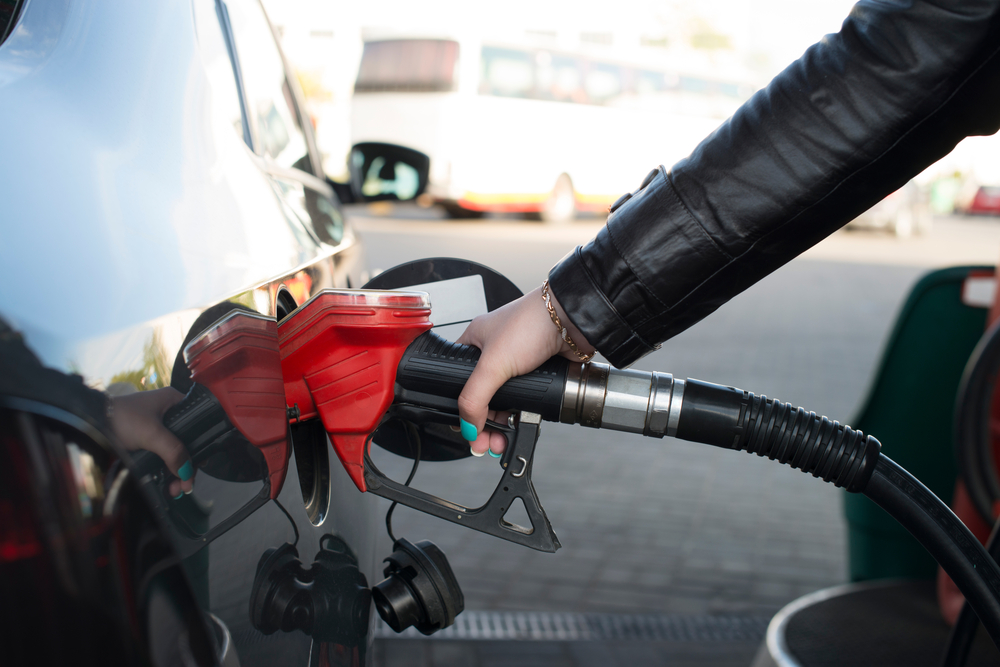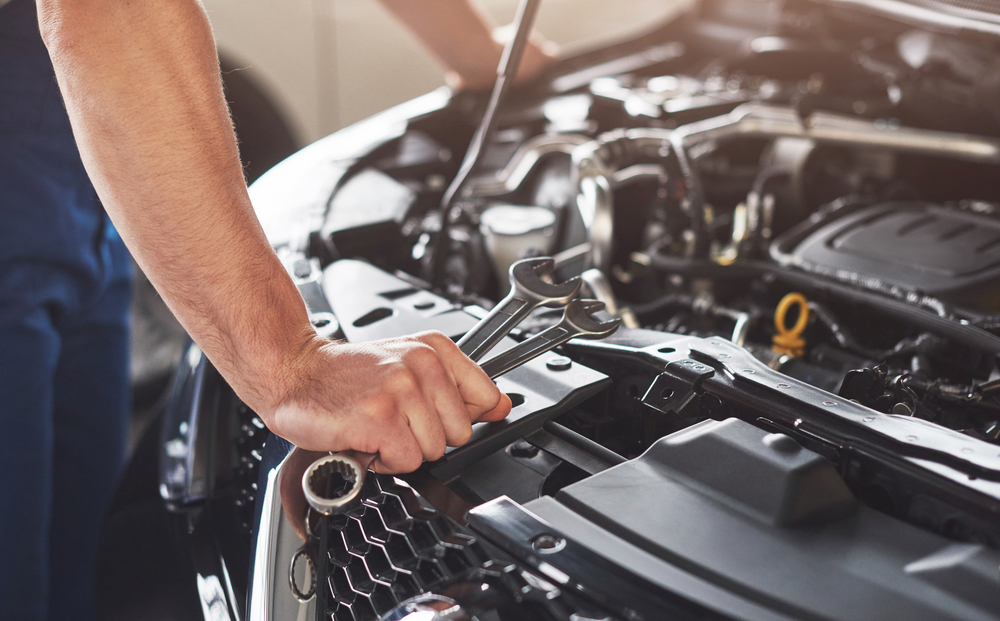There’s nothing worse than the feeling of constantly refueling your car, only to burn through the gas in no time at all. Though bad gas mileage may sometimes just be a fact of life depending on the type of car you have, if you suddenly start to experience poor gas mileage, there may be an underlying issue at play.
In this article, we will detail all the most common reasons you may be experiencing bad gas mileage and give you some tips on what to do about them. We’ll also discuss the best time to see a professional regarding your gas mileage issues.
The Most Common Reasons Behind Bad Gas Mileage

There could be many potential factors that interfere with your car getting the best mileage it can. We’ve listed the most common reasons for bad gas mileage and what you should be looking out for in order to properly identify these issues.
Worn Piston Rings
Piston rings are located between the cylinder and piston of your engine; they form a tight seal against the cylinder wall which can loosen over time. As the piston rings become more worn, there is a reduction in compression, which reduces fuel economy.
You should keep in mind that your piston rings will wear out sooner if you are using the incorrect oil type, not changing your oil as frequently as needed, or regularly driving on oil levels that are too low.
Other signs of worn piston rings include white or grey exhaust smoke, low acceleration power, and an overall loss of performance while driving your car.
Ignition System Issues
The ignition system in your car is designed to conduct electricity through the engine, effectively starting and running your car; this system is full of many different components that all need to work together in time to ensure maximum function and fuel economy.
If elements of the ignition system such as spark plugs, plug wires, or the ignition coil start to go bad or stop working, fuel will not combust in the cylinder properly. This will lead to unburnt fuel and bad gas mileage.
In addition to poor fuel economy, if you notice your car sounds rough when idling, difficulty starting the engine, or a general loss of power when you drive, you may be dealing with an ignition system issue that needs to be evaluated and fixed.
Faulty Fuel Injectors
The fuel injector’s sole purpose is to supply the engine with fuel in order to keep it running. If the injector is clogged or faulty, it won’t supply fuel in the correct pattern or the correct timing, leading to a misfiring engine, engine stalling, and bad gas mileage.
Faulty Timing Belt
The timing belt of your vehicle is designed to rotate the engine’s camshaft in sync, ensuring that all cylinders are firing at the correct time. However, if the timing belt is broken or installed incorrectly, it won’t sync up properly and will leave intake and exhaust valves open and closing at the incorrect times. This can cause an engine that runs roughly and poor fuel economy.
Clogged Air Filter
If you’ve never had the engine air filter on your car replaced, you may want to look into getting it done as soon as possible. Clogged air filters can reduce the amount of air that makes its way into the engine, causing the engine to work harder and burning up more fuel.
You may also want to check that your O2 sensors are working correctly, as a faulty oxygen sensor can cause an inefficient mix of air and fuel, leading to bad gas mileage.
Engine Oil Issues
The right amount and type of engine oil is essential to having your car run as smoothly and as efficiently as possible. Using oil that is too thick can make the engine of the car work harder, leading to a loss in fuel economy.
Additionally, using an oil that isn’t right for your car or pouring in too much oil can decrease the efficiency of your engine and may cause issues, like a burning smell and white or blue exhaust smoke, while using too much fuel.
Low Tire Pressure
When the pressure in your tires is too low, the rolling resistance will be decreased. This can lead to a drop in fuel economy as your car now has to work harder to maintain its speed. While many newer cars have sensors that indicate when the tire pressure is low, they may not alert until the tire pressure is too low to continue driving on the tires; even running a few PSI low can reduce your fuel economy.
If you want to check your tire pressure on a more regular basis, we recommend using a tool like this one to ensure your tires are always in good shape and you are getting the most out of your tank of gas.
Cold Weather
Sometimes, bas gas mileage is a seasonal issue; cold weather means that your vehicle takes much longer to warm up and get to its optimal operating temperature. Additionally, the oil in your car will be more viscous at colder temperatures, which is another blow to engine efficiency.
Your engine will also need more fuel to maintain its air to fuel ratio, as colder air tends to be more dense than warmer air. Aside from not driving your car as much in the winter, there is unfortunately not a lot that can be done to fix bad gas mileage that is only happening as a result of cold weather.
Bad Alignment
When your car’s tires are out of alignment, you will end up using much more fuel. This is due to the fact that you will have to fight the resistance of your car’s tires wanting to move in subtly different directions while you are trying to drive in a straight line.
You should also know that is can be very unsafe to drive with tires that are out of alignment, so even if your bad gas mileage issue is caused by something else, you may want to get your tires checked for proper alignment anyway.
Air Conditioner Overuse
While it can be nice to drive with the AC cranked up to high, especially during the hot summer months, too much air conditioner use will create a draw on your fuel, drastically reducing your fuel economy.
When possible, you should try to drive with your windows down and the AC on low or off; during high speeds and on the highway, you should close the windows to reduce drag and use the air conditioner, but try not to blast the air conditioner on max for the entire duration of your trip.
Using the Incorrect Fuel
As you refuel your car, you should make sure to only put the manufacturer recommended fuel type into your vehicle. Putting premium gas in a car that runs on a lower octane or putting a lower grade fuel into a car that requires a higher octane of gas can cause issues such as slow ignition timing and spark plug issues, leading to lower engine efficiency and bad gas mileage.
Excessive Idling
One of the most common issues that reduces fuel economy is excessive idling. You should not be leaving your car running for too long while you are sitting in park and not planning on driving away any time soon. You may also be trying to let your car warm up in winter, but the reality is that most cars only need about 30 seconds of warm up time.
Idling too often will burn up gas without you actually driving anywhere, leading to poor gas mileage. Make sure to turn off your car or leave it running and place it in neutral when you are planning on staying with your car for an extended period, but not driving it.
Driving Too Fast
One of the easiest issues to fix, driving too fast, and poor driving skills in general, can lead to poor gas mileage. Stepping on your accelerator allows more air to enter into the combustion chamber; your car and its engine control unit are designed to add more fuel into this chamber as more air is added in, efficiently controlling the air to fuel ratio. The more you step on the accelerator and introduce air into the chamber, the more fuel you will burn through.
Similarly, tailgating other drivers or being impatient in traffic will also burn you a lot of fuel. Constantly hitting the accelerator and brakes in rapid succession to stay behind someone or to try and cut around other cars in traffic will ruin your fuel economy, as you will burn more gas the more you press on the accelerator.
To fix these issues, accelerate gradually and don’t stomp on the gas pedal whenever possible to prevent issues like this. You should also try to maintain a sense of calm when driving, and don’t get carried away being angry at other drivers, traffic, or trying to tailgate.
Can You Fix Bad Gas Mileage Yourself?

In some cases, it may be possible to diagnose and fix the issues of bad gas mileage all by yourself. If the issue is as simple as changing spark plugs or replacing an engine air filter, you can have your car running efficiently in no time at all.
However, if a DIY diagnosis and fix doesn’t cure your bad gas mileage issues, then you should probably consult with a mechanic to have the issue found and addressed before the problem gets any worse.
When to See a Professional About Bad Gas Mileage
If you suspect that you have more serious car issues, such as worn piston rings, bad tire alignment, or timing belt issues, it may be wise to head straight to a mechanic to properly diagnose and fix the issue. Consulting with a mechanic is especially helpful if you’ve tried to find and fix the issue causing your bad gas mileage and have turned up nothing, or if you can’t exactly pinpoint any one cause of bad gas mileage.
A professional will be able to evaluate all components of your vehicle and its engine, giving you a full run down of any problems you are facing and the best solutions to improve your gas mileage.
A Smooth-Running Car Saves Gas Money
Bad gas mileage can be an incredibly frustrating thing to deal with, and in some cases, can even be a warning sign of greater issues with your engine.
However, once you have figured out the issue causing your poor fuel economy, you should easily be able to have the problem fixed, either by yourself or a professional, and can return your car to its smooth-running glory in no time at all.


